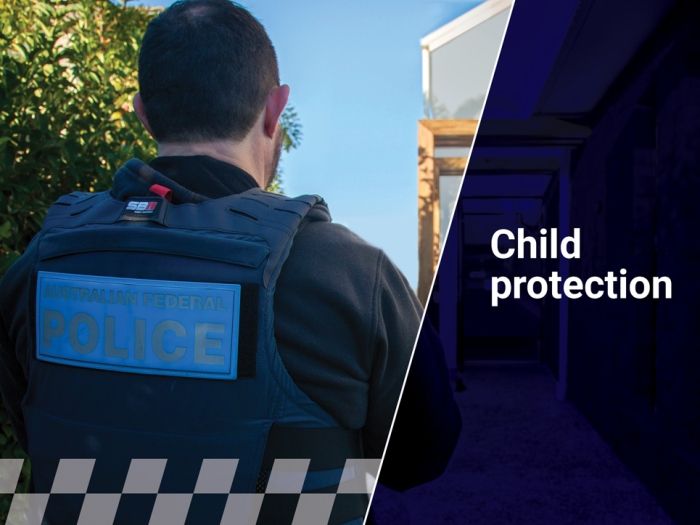Mid North Coast man jailed for multiple child abuse material offences
A South Kempsey man has been sentenced to nine years' imprisonment on 24 September, 2024, for online child abuse-related offences.
The man, 28, was sentenced by the Downing Centre District Court to nine years’ imprisonment, with a non-parole period of three years.
Investigations by the AFP and United States Homeland Security Investigators (HSI) identified the man engaging with 14 child victims to procure child abuse material, of which he obtained and stored a significant amount.
AFP officers executed a search warrant at the man’s South Kempsey home in May 2023, during which they located child abuse material on online cloud storage accounts and chat logs with child victims saved on the man’s phone. The man was subsequently arrested and charged.
The man, 28, pleaded guilty to the following offences on 1 May 2024:
- Two counts using a carriage service to transmit indecent communication to person under 16 years of age contrary to section 474.27A of the Criminal Code (Cth);
- 10 counts procure the production of child abuse material for use through a carriage service contrary to section 474.23(1) with 11.3 of the Criminal Code (Cth);
- 10 counts cause child abuse material to be transmitted to self using a carriage service contrary section 474.22(1) of the Criminal Code (Cth); and
- One count possess child abuse material obtained or accessed using a carriage service contrary to section 474.22A of the Criminal Code (Cth).
AFP Detective Acing Inspector Emmanuel Tsardoulias said the AFP worked closely with partners to identify anyone involved in the abuse and exploitation of children.
“This arrest should serve as a warning that the AFP, together with our international law enforcement partners, are dedicated to fighting child sexual abuse and bringing those who commit these abhorrent offences before the court,” Detective Acing Inspector Tsardoulias said.
“Investigations such as this should serve as a serious warning that law enforcement has zero tolerance for child exploitation and child sexual abuse in any form no matter where in the world it is taking place.”
HSI Attaché Ernest Verina said HSI stands firm in its commitment to work closely with Australian partners to protect children from exploitation, and to bring justice to those who seek to harm them.
“This sentencing should serve as a warning to perpetrators of these offences that our agencies will work tirelessly to see them held to account.”
The AFP and its partners are committed to stopping child exploitation and abuse and the Australian Centre to Counter Child Exploitation (ACCCE) is driving a collaborative national approach to combatting child abuse.
The ACCCE brings together specialist expertise and skills in a central hub, supporting investigations into online child sexual exploitation and developing prevention strategies focused on creating a safer online environment.
Members of the public who have information about people involved in child abuse are urged to contact the ACCCE. If you know abuse is happening right now or a child is at risk, call police immediately on 000.
If you or someone you know is impacted by child sexual abuse and online exploitation, support services are available.
Research conducted by the ACCCE in 2020 revealed only about half of parents talked to their children about online safety. Advice and support for parents and carers about how they can help protect children online can be found at the ThinkUKnow website, an AFP-led education program designed to prevent online child sexual exploitation.
For more information on the role of the ACCCE, what is online child sexual exploitation and how to report it visit the ACCCE website.
Note to media
Use of term 'CHILD ABUSE' MATERIAL not ‘CHILD PORNOGRAPHY’
The correct legal term is Child Abuse Material – the move to this wording was among amendments to Commonwealth legislation in 2019 to more accurately reflect the gravity of the crimes and the harm inflicted on victims.
Use of the phrase ‘child pornography’ is inaccurate and benefits child sex abusers because it:
- indicates legitimacy and compliance on the part of the victim and therefore legality on the part of the abuser; and
- conjures images of children posing in 'provocative' positions, rather than suffering horrific abuse.
Every photograph or video captures an actual situation where a child has been abused.



